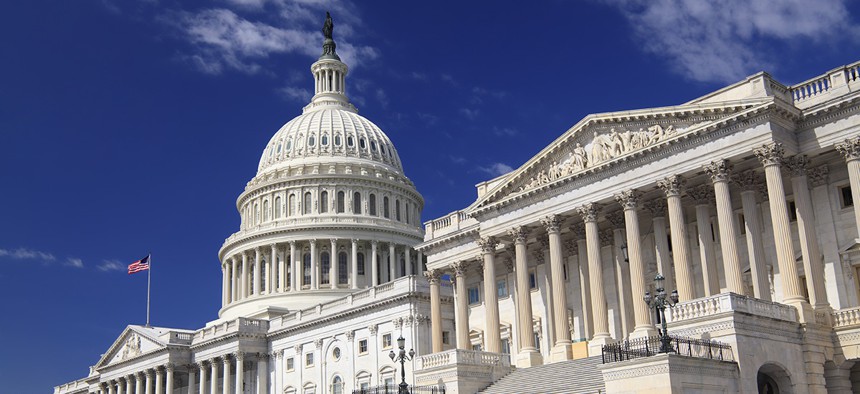Senate Narrowly Passes Repeal of Obama Fair Pay, Safe Workplace Rule

Vlad G/Shutterstock.com
Repeal of what critics call contractor "blacklisting" heads to a receptive President Trump.
The Senate on Monday narrowly approved a House-passed resolution to overturn President Obama’s Fair Pay, Safe Workplaces order, handing a victory to contractors who had blasted the order and the Labor Department’s rule to implement it as “blacklisting.”
The vote was 49-48, and President Trump, based on a Feb. 1 statement of administration policy, appears likely to sign the resolution.
HJ Res 37, sponsored by Rep. Virginia Foxx, R-N.C., declares that the implementation of the rule submitted in August by the Defense Department, General Services Administration, and NASA relating to the Federal Acquisition Regulation has no effect.
Obama’s original order aimed to protect contractor employees from wage theft and unsafe working conditions by requiring employers bidding on federal contracts to disclose violations and alleged violations of 14 federal labor laws and similar state labor laws. Many contractors resisted the plan as a burdensome form of “blacklisting” that penalized companies for unproven violations. The Labor Department‘s guidance issued last August was subsequently blocked by a federal court.
“This rule… has the very real potential of subjecting perfectly innocent contractors to blackmail and extortion tactics during union contract negotiations,” said Sen. Ron Johnson, R-Wis., chairman of the Homeland Security and Governmental Affairs Committee, in the run-up to the vote. “As if the blackmail potential of the rule isn't enough, the Obama administration admitted that the final rule would cost at least $398 million to comply with every single year.”
Democrats decried the resolution as a danger to employee safety and well-being. “We must do everything possible to defend American workers,” said Sen. Richard Blumenthal, D-Conn. “It’s not about blackballing or blacklisting companies but creating a level playing field for all contractors.” He stressed that only “actual violations” would enter into agency decisions on letting a contract and that procurement officers would “try to work with the companies to come into compliance with the law.”
On the day of the vote, Sen. Elizabeth Warren, D-Mass., released results of her staff’s study titled “Breach of Contract: How Federal Contractors Fail American Workers on the Taxpayer’s Dime.”
Among its conclusions in defense of the Obama order:
- Of the federal government’s 100 largest contractors, which, combined, received nearly $240 billion in taxpayer payments in 2015, 66 have been caught breaking federal labor laws (top contractor Lockheed Martin, the study said, had nearly 3,000 violations and has agreed to pay its workers back pay of $3.5 million);
- Of the 100 largest penalties imposed by the Occupational Safety and Health Administration since Jan. 1, 2015, more than a third were issued to companies that have held federal contracts within the last decade, and 12 applied to companies that received contracts worth at least $100,000 from the federal government in 2016. “Each of these penalties, which range from $150,000 to $1.4 million, resulted from serious, willful, or repeat violations,” the study said.
The House version of the repeal passed on Feb. 2 by a vote of 236-187, as part of the Republican push to undo Obama-era regulations using retroactive powers under the 1996 Congressional Review Act.






